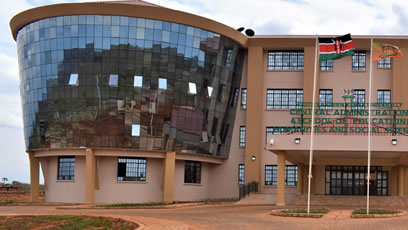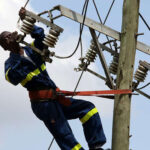With climate change creating more extreme weather patterns across Africa, Kenya needs more qualified meteorologists than ever before. A BSc in Meteorology prepares you for exciting careers in weather forecasting, climate research, and disaster management – with opportunities in both government and private sectors.
This comprehensive guide covers everything you need to know about pursuing meteorology through KUCCPS 2025 placements:
✔ Only 2 universities offering the program (2025)
✔ Detailed entry requirements (KCSE grades & subjects)
✔ Career opportunities and salary expectations
✔ Comparison of the two programs
✔ Step-by-step application process
KUCCPS 2025: Universities Offering BSc Meteorology
| University | Program Name | Mean Grade | Subject Requirements |
|---|---|---|---|
| University of Nairobi (UoN) | BSc Meteorology | C+ | MAT A (C+), PHY (C+), GEO/CHE (C) |
| South Eastern Kenya University (SEKU) | BSc Meteorology | C+ | MAT A (C+), PHY (C+), GEO/CHE (C) |
Key Differences Between Programs:
1. University of Nairobi
✔ Established: 1970s (Oldest program in East Africa)
✔ Strengths: Strong research focus, ties with Kenya Meteorological Department
✔ Unique Features: Access to national weather station data
2. South Eastern Kenya University
✔ Established: 2010s (Newer program)
✔ Strengths: Focus on arid/semi-arid meteorology
✔ Unique Features: Field stations in dryland regions
Entry Requirements for BSc Meteorology (2025)
1. KCSE Minimum Grades
| Subject | Minimum Grade |
|---|---|
| Overall Mean | C+ |
| Mathematics (MAT A) | C+ |
| Physics | C+ |
| Geography/Chemistry | C |
| English/Kiswahili | C+ |
2. Additional Requirements
- Strong interest in environmental sciences
- Analytical and problem-solving skills
- Physical fitness (For field work)
3. Alternative Entry Paths
| Pathway | Requirements |
|---|---|
| Diploma Holders | Diploma in Meteorology/Environmental Science (Credit) |
| Degree Transfers | Completed 1 year in Physics/Geography degree |
Career Opportunities for Meteorology Graduates
1. Government Sector
- Meteorologist (KMD, Ksh 70,000 – Ksh 150,000)
- Climate Change Officer (NEMA, Ksh 90,000 – Ksh 180,000)
2. Aviation Industry
- Aviation Meteorologist (KCAA, Ksh 120,000 – Ksh 250,000)
- Flight Dispatcher (Ksh 100,000 – Ksh 200,000)
3. Research & Academia
- Climate Researcher (Ksh 150,000+)
- University Lecturer (After MSc, Ksh 120,000+)
4. Emerging Fields
- Renewable Energy Meteorologist (Solar/Wind farms)
- Disaster Risk Reduction Specialist (Ksh 180,000+)
Why Study Meteorology in Kenya?
1. Growing Industry Demand
- Kenya needs 300+ new meteorologists by 2030 (KMD report)
- New weather stations being established nationwide
2. Unique Career Advantages
✅ Job security (Essential government service)
✅ Fieldwork opportunities across diverse climates
✅ International mobility (WMO-recognized qualification)
3. Alumni Success Stories
- Dr. Richard Muita (UoN alum) – Deputy Director, KMD
- Dr. Susan Koech (SEKU alum) – Lead Researcher, IGAD Climate Center
How to Apply via KUCCPS 2025
Step-by-Step Process
1️⃣ Check Eligibility – Confirm your KCSE grades meet requirements
2️⃣ Log into KUCCPS Portal
3️⃣ Select Both Meteorology Programs (Only 2 options available)
4️⃣ Choose Alternative Programs (Environmental Science, Physics)
5️⃣ Pay Ksh 1,500 via M-Pesa (Buy Goods Till: 222222)
6️⃣ Submit & Wait for Placement
Pro Tip: Apply for both universities to maximize your chances
Alternative Options If You Don’t Qualify
1. Related KUCCPS Programs
- BSc Environmental Science (12 universities)
- BSc Physics (8 universities)
2. Diploma Pathways
- Diploma in Meteorology (Kenya Meteorological Training School)
- Diploma in Environmental Science (Many TVETs)
3. Professional Certifications
- WMO Basic Instruction Package
- GIS for Climate Applications (ESRI Certification)
With only two universities offering meteorology through KUCCPS, competition is intense. However, graduates enjoy near-100% employment rates in this critical field.
📢 Take Action Now!
✅ Confirm your Physics and Math grades meet requirements
✅ Apply early via KUCCPS Portal
✅ Prepare for potential interviews
🔗 Share this guide with future meteorologists!





